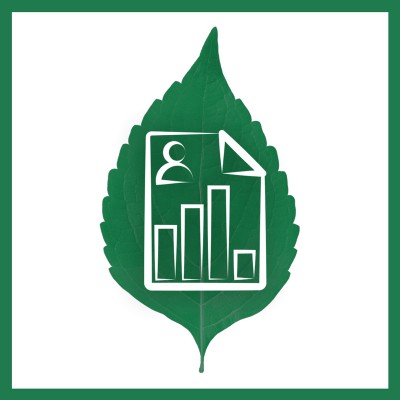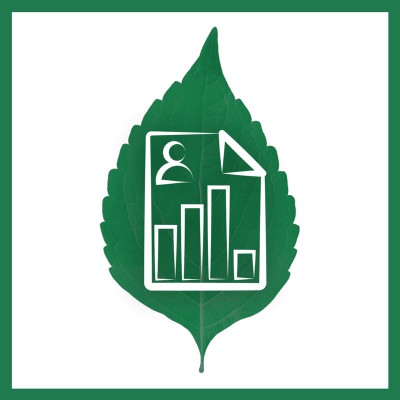 SEARCH
SEARCHProduct successfully added to your shopping cart
There are 0 items in your cart. There is 1 item in your cart.
Authors: Rudolf H. Moos & Paul M. Insel
The Work Environment Scale (WES) measures the social environment of all types of work settings. It comprises ten subscales or dimensions, which are divided into three sets: the Relationship Dimensions, the Personal Growth or Goal Orientation dimensions, and the System Maintenance and System Change dimensions.
The WES can be used to describe workplace social environments, contrast employees’ and managers’ views of their work groups, and compare actual and preferred work environments. Individual employees’ perceptions of a work group can be compared with one another. The WES can also be used to facilitate counseling and career planning and help formulate clinical case descriptions. In addition, the WES has some important applications for program evaluation. The WES can help to plan and monitor change in work settings, evaluate the impact of intervention programs, and promote improvement in the workplace.
The WES is available in three forms. Form R measures an employee's perception of the work environment; Form I (Ideal) measures the ideal workplace goals and values your employee holds; Form E (Expected) assesses an employee's work environment expectations. Administration of a single form (R, I, or E) is counted as an administration, while administration of all three forms one time is counted as three administrations.
Copyright © 1974 by Rudolf H. Moos
- Buy It
- Sample Items
- Product Specs
- Translations
- Related Products
- Manual$50.00Includes details on reliability, validity, scoring, etc. and a review-only copy of the WES form. PDFs are not refundable.In Stock
- Individual Report: Real Form$15.00Builds a report that interprets an individual's WES Real Form scores. You invite participants to take the survey and Transform™ generates their reports.In Stock
- Individual Report: Ideal Form$15.00Builds a report that interprets an individual's WES Ideal Form scores. You invite participants to take the survey and Transform™ generates their reports.In Stock
- Report About Me - Real Form$20.00Interprets and reports on your WES scores. You complete the survey and Transform™ generates your report. Transform will connect this report to the "Send To" email provided at checkout. Note: This product is for a single use, with automated survey administration. For multiple uses, buy instead the Individual Report product in quantity needed.In Stock
- Report About Me - Ideal Form$20.00Interprets and reports on your WES scores. You complete the survey and Transform™ generates your report. Transform will connect this report to the "Send To" email provided at checkout. Note: This product is for a single use, with automated survey administration. For multiple uses, buy instead the Individual Report product in quantity needed.In Stock
- Group Report: Real Form$200.00Builds a report that calculates and summarizes average WES Real Form scores for a group of participants.In Stock
- Group Report: Ideal Form$200.00Builds a report that calculates and summarizes average WES Ideal Form scores for a group of participants.In Stock
- Transform Survey Hosting: Real Form (Data)$2.75Minimum purchase of 20. Allows you to administer the WES Real Form as an online survey using Mind Garden's Transform™ System. Includes data collection: data file with participants' raw data and raw scale scores. Optionally, Individual Reports and Group Reports can be generated from the collected data - requires the purchase of report licenses. Customization services are available.In Stock
- Transform Survey Hosting: Ideal Form (Data)$2.75Minimum purchase of 20. Allows you to administer the WES Ideal Form as an online survey using Mind Garden's Transform™ System. Includes data collection: data file with participants' raw data and raw scale scores. Optionally, Individual Reports and Group Reports can be generated from the collected data - requires the purchase of report licenses. Customization services are available.In Stock
- License to Administer$2.75Minimum purchase of 50. Allows you to administer the WES as an online survey via a non-Mind Garden survey system or as a paper and pencil survey. The downloadable PDF file includes one copy each of the three WES forms, scoring key, and permission to administer the WES up to the quantity purchased. The PDF is non-refundable.In Stock
- Social Climate Scales: A User's Guide: Social Climate Scales User's Guide$10.00Read more about Social Climate Scales: A User's Guide
This Guide to the Social Climate Scales introduces the ten Scales and gives an overview of their use.In Stock
Features of the WES
Purpose: Measure the social environment in work settings to evaluate productivity, assess employee satisfaction, and clarify employee expectations.
Length: 90 items
Average completion time: 25-30 minutes
Target population: Working adults
Administration: For individual or group administration
Uses of the WES
- Diagnose problems in a work group
- Organizational change planning
- Program evaluation
- Leadership change measurement and development
- Team building and development
- Identify risks in work climate such as high absenteeism, high turnover, or poor work quality
Scales
Relationship Dimensions
The first three dimensions measured by the WES are the Relationship Dimensions, which assess how committed employees are to their jobs, how friendly the employees are, and how supportive they are of each other, and how supportive managers are of employees.
Involvement
The Involvement subscale measures the extent to which employees are concerned about and committed to their jobs, for example: how challenging the work is, the pride people have in the organization, and the effort they put into what they do.
Coworker Cohesion
The Coworker cohesion subscale taps the extent to which employees are friendly and supportive of one another, for example: the effort people make to help a new employee feel comfortable, the interest they have in each other, and how frank they are about their feelings.
Supervisor Support
The Supervisor Support subscale assesses the extent to which management is supportive of employees and encourages them to be supportive of one another, for example: how often supervisors compliment an employee who does something well, how often they give full credit to the ideas contributed by employees, and whether employees feel free to ask for a raise.
Personal Growth or Goal Orientation Dimensions
The Personal Growth, or Goal Orientation, subscales make up another set of WES dimensions. This set focuses on the emphasis on independence, getting the job done, and job demands. These dimensions include the Autonomy, Task Orientation and Work Pressure subscales. All three subscales contribute to a description of the work setting’s goal orientation; Autonomy and Task Orientation tap personal growth dimensions as well.
Autonomy
The Autonomy subscale measures the extent to which employees are encouraged to be self-sufficient and to make their own decisions, for example: how much freedom employees have to do as they like, how much they are encouraged to make their own decisions, and whether people can use their own initiative to do things.
Task Orientation
The Task Orientation subscale taps the degree of emphasis on good planning, efficiency, and getting the job done, for example: how much attention people pay to getting work done, how often things get “put off until tomorrow,” and how efficient and task-oriented the workplace is.
Work Pressure
The Work Pressure subscale assesses the degree to which the pressure of work and time urgency dominate the job milieu, for example: how much time pressure there is to keep working, how often there seems to be an urgency about everything, and whether people can afford to relax.
System Maintenance and System Change Dimensions
The System Maintenance and System Change Dimensions , the last set of dimensions measured by the WES, assess the work setting’s emphasis on rules and policies and on variety and innovation; it also taps the pleasantness of the physical setting. The four subscales in this domain are Clarity, Control, Innovation, and Physical Comfort.
Clarity
The Clarity subscale taps the extent to which employees know what to expect in their daily routine and how explicitly rules and policies are communicated, for example: how well activities are planned, how clearly the responsibilities of supervisors are defined, and how well the details of assigned jobs are explained to employees.
Control
The Control subscale assesses the extent to which management uses rules and pressures to keep employees under control, for example: how much following policies and regulations is emphasized, whether people are expected to follow set rules in doing their work, and how closely supervisors watch employees.
Innovation
The Innovation subscale measures the degree of emphasis on variety, changes, and new approaches, for example: whether doing things in a different way is valued, whether new and different ideas are tried out, and whether the place is one of the first to try out a new idea.
Physical Comfort
The Physical Comfort subscale measures the extent to which the physical surroundings contribute to a pleasant work environment, for example: how good the lighting is, how stylish and modern the place appears, and whether the colors and decorations make it a warm and cheerful place in which to work.
If you are unable to find the translation you need, you can request permission to make a translation.
Available with WES License to Administer:
These translations are available free of charge with your purchase of the license. Translations are provided in a separate pdf-format file. Select the language from the Translation drop-down list. Need multiple translations? Contact us.
- Arabic (Real Form only)
- Chinese (Real Form only))
- Dutch (Real Form only)
- Estonian (Real Form only)
- French (Real Form only)
- German (Real Form only)
- Hindi (Real Form only)
- Indonesian (Real Form only)
- Italian (Real Form only)
- Japanese (Real Form only)
- Polish (Real Form only)
- Portuguese (Real Form only)
- Spanish (Real Form only)
No translations available with WES Transform™ Survey Hosting.
Note: We cannot assure translation quality — many are made by individual researchers and we are not necessarily familiar with the particular language or dialect. Some of the translations are partial and typically do not have validation data. Basically, we offer whatever is available to facilitate your work.
Assesses personality traits with a full sphere of descriptive adjectives. The ACL provides a convenient, standardized method for recording and generating meaning for personal attributes of an individual. The ACL form can be used for self or observer ratings and Transform provides self or multi-rater assessment and reporting.
The organizational context of burnout.
Measures the components that comprise Authentic Leadership: self awareness, transparency, ethical/moral behavior, and balanced processing.
Assesses the social climate of all types of families.
Assesses the social climate of groups and teams. It has been used in clinical and organizational settings to facilitate group counseling and team building, and to compare members’ and leaders’ views of their group or team.
Provides an insightful look into the military environment and a means of pinpointing areas in need of change.
The benchmark measure of transformational leadership.
Measures how often each member of the organization perceives the culture of their unit, department, or organization, to be using transformational or transactional leadership styles.
Evaluates influence strategies in organizational relationships.
Measuring the Resource of Psychological Capital - Hope, Efficacy, Resilience and Optimism
Assessment of two theoretically derived, unique forms of psychological ownership: Preventative and Promotive.
This Guide to the Social Climate Scales introduces the ten Scales and gives an overview of their use.
Assesses the social climate of university student living groups.
Measures the actual, preferred, and expected treatment environments of hospital-based psychiatric programs.
Measures a range of job behaviors and practices referring to beliefs in one's command of the social requirements necessary for success in the workplace.

 LOGIN
LOGIN  BLOG
BLOG
 CART
CART









